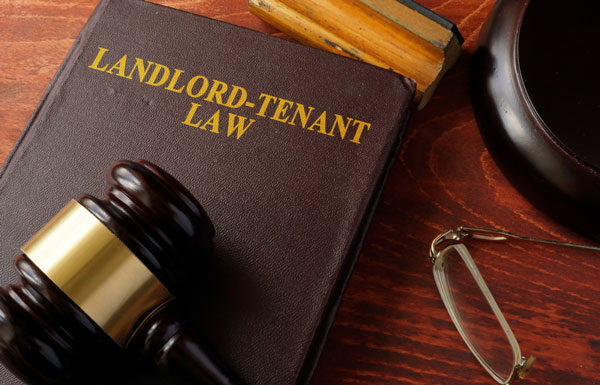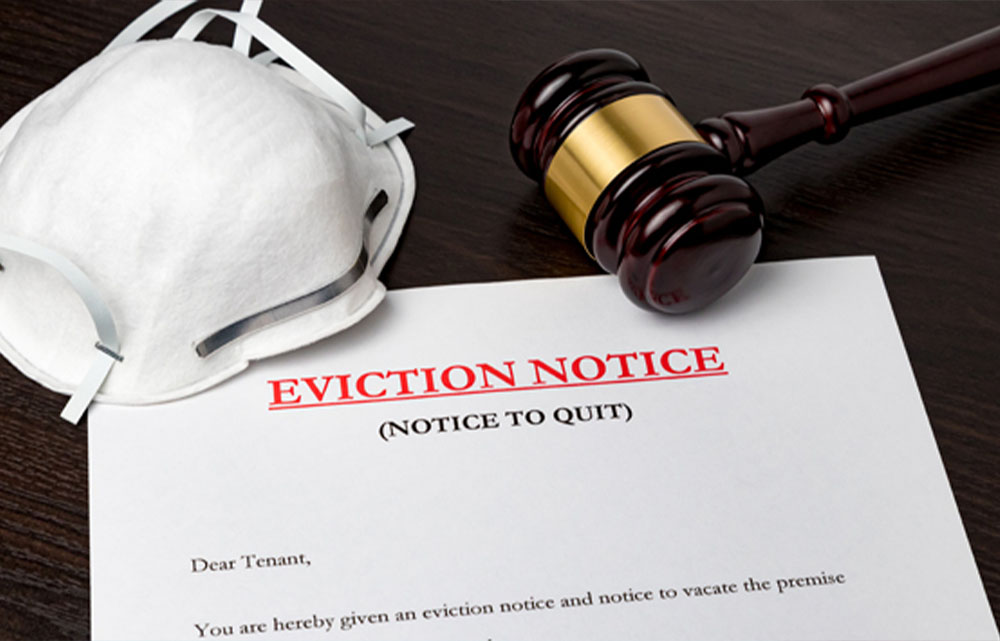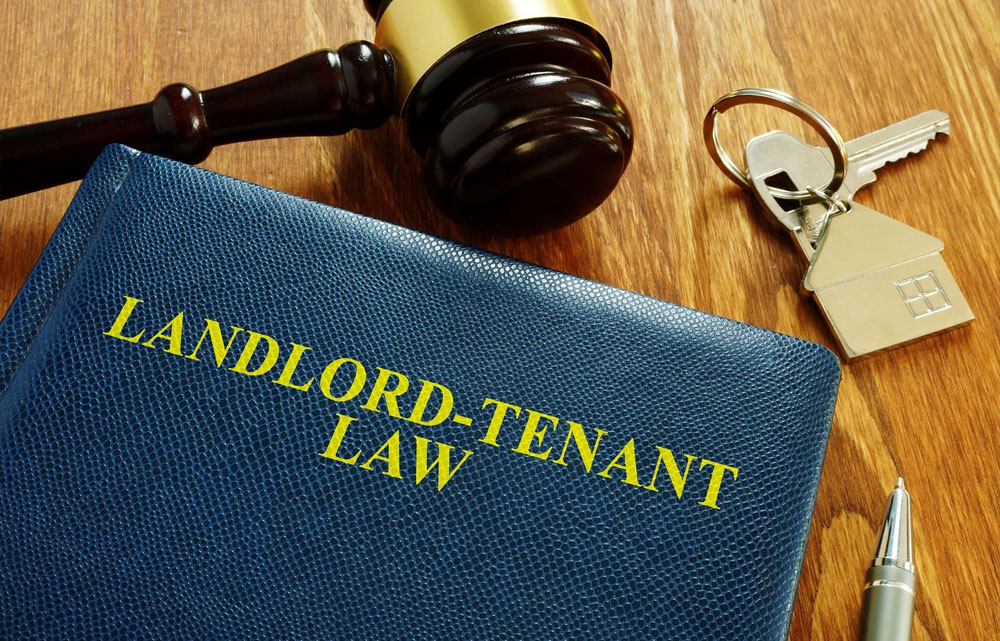Nevada Rental Laws
Serving Your Local Area
Services
why you need to know
Rental laws guide for homeowners in Nevada
The state of Nevada has established laws for homeowners to follow. Know your rights and obligations as a rental property owner, and avoid legal disputes with tenants.
Overview of Landlord – Tenant Laws in Nevada
Both landlords and tenants must know basic information about Nevada state rental laws to know their rights and responsibilities.

What landlord disclosures are required in the lease agreement?
Landlords must include in the lease agreement state-required disclosures on security deposits, charging of non-refundable fees, any damages to the property, presence of any health hazards and current condition, and tenant rights to be present during a move-out inspection among others.
Is there a limit on the amount of security deposit a landlord can charge?
Yes. State law limits the tenant’s security deposit to no more than the amount of three months’ rent. It must be refunded within 30 days after the move-out, and in a manner stated by the landlord in the lease agreement.
Can tenants sue for the return of their deposit?
Yes. If the landlord refuses to return the security deposit, the tenant can file a Security Deposit Lawsuit in Nevada Small Claims Court up to a dollar amount of $7,000.
Is there a limit on how much late fees a landlord can charge?
Yes. The late fee a landlord can charge should not be more than 5% of the total monthly rent. However, landlords are required to give tenants 45 days notice to raise rent before charging any late fees.
Can a tenant withhold rent payment?
Yes. If a landlord fails to make necessary repairs to the rental property, the tenant can exercise the right to “Repair and Deduct”.
How many days notice should the landlord give the tenant upon termination of tenancy?
The state requires the landlord to give the tenant 5 days notice to move out after the termination of lease, or cure a violation of the lease, before filing for eviction.
Can landlords enter a rental property without notice?
No. For landlords to exercise rights to access rental property for repair or inspection, they must give the tenant 24 hours notice.
What landlord retaliatory acts against tenants exercising their legal rights are covered by the state statutes?
The state prohibits landlords from making retaliatory acts against tenants making complaints to other agencies about unsafe living conditions. These acts include:
- Increasing rent
- Terminating tenancy agreements
- Refusing to renew a lease
- Decreasing services or shutting off utilities
What are the landlord-tenant statutes?
Rules and Regulations Governing Nevada Landlord-Tenant Laws
- N.R.S. Title 10, Chapter 18 – Discrimination in Housing; Landlord and Tenant
- N.R.S. Title 10, Chapter 18A – Landlord and Tenant: Dwellings
- N.R.S. Title 10, Chapter 18B – Landlord and Tenant: Manufactured Home Parks
- N.R.S. Title 10, Chapter 18C – Landlord and Tenant: Commercial Premises
- N.R.S. Title 3, Chapter 40 – Actions and Proceedings in Particular Cases Concerning Property
Tenant Defenses to Evictions in Nevada
Tenants have the right to defend themselves when facing eviction in Nevada. Get to know their legal rights, to ensure safe and smooth eviction process.

What defenses are available for tenants who are evicted using self-help procedures?
Evicting a tenant using self-help procedures such as changing locks, removing tenant’s belongings, or cutting off utilities, is illegal in Nevada unless a landlord obtains a court order. If a landlord fails this procedure and forcefully evicts a tenant, the tenant can use this defense to fight against the eviction.
How can tenants defend themselves when a landlord didn't follow proper eviction procedures?
Following all eviction procedures is imperative before evicting a tenant in Nevada. The failure of a landlord to perform all procedures can be used as a defense to delay the eviction lawsuit. If the landlord complies with the process, the eviction will move ahead.
How can tenants challenge an evictions for non-payment of rent?
The state requires landlords to serve a 7-day notice to tenants. If the tenant pays the amount within the given period, the landlord must not proceed with the eviction. If the landlord insists, the tenant can use the payment receipts as a defense.
A tenant may also challenge an eviction for nonpayment of rent if the landlord neglects to maintain a unit’s habitability or make necessary repairs. A tenant can hold off rent until the landlord makes the repair; or arrange to make the repairs and deduct the cost from the amount owed. If the eviction proceeds, the tenant can use the evidence of the landlord’s noncompliance to make the repairs to fight the eviction.
Can tenants defend themselves against eviction due to lease violation?
Yes. A landlord evicting a tenant for lease violation must give the tenant a chance to correct the offense within five days upon receiving the eviction notice. If the tenant can fix the violation within the allowed time and the landlord continues with the eviction, the tenant can use the evidence of compliance to fix the error as a defense.
What defenses can be used if a landlord is evicting tenant in retaliation?
A tenant who exercised legal rights and got evicted in retaliation can use those legal actions as evidence to counter the eviction. These legal actions may include:
- lawsuit filing against the landlord for any code violations
- reporting the landlord to government authority for failing to make repairs to the unit
- joining or establishing a tenant union
Do tenants have available defenses when evicted for discriminatory reasons?
The state made it illegal to evict a tenant for discriminatory reasons. In the event of eviction, a tenant can use the discrimination as an evidence to battle against the eviction. These discriminatory reasons include race, religion, gender, national origin, familial status, or disability.
Tenant Abandonment of Rental Property
There are legal rules for landlords to follow when dealing with an abandoned rental property.

When is a rental property considered abandoned?
The property is considered abandoned on these two instances:
- The tenant provided the landlord with a notice of abandonment
- The tenant is absent from the property for half of the rental period (i.e. half of a month) without current payment.
What can a landlord do with belongings left behind by tenants?
Landlords must first move and store tenant belongings for 30 days, and make reasonable efforts to locate and notify tenants of intention to dispose of their belongings. When the tenant responds, landlords can charge moving and storage fees before releasing them to the tenant. When the timeframe has expired and the landlord has waited for days since the notice was given to the tenant, any action on disposal of belongings can now be made.
Is the landlord required to notify the tenant before disposing of the property?
Yes. The landlord can begin the process of disposing the abandoned property after storing it for 30 days. However, the landlord must make reasonable efforts to locate and notify through mail sent to the tenant’s former address. The letter should indicate the intention to sell and other details such as:
- A detailed inventory, description, and estimated value of the property
- Where to the property is stored and how much to pay if the tenant wishes to claim
- The deadline to claim the property
- What will happen to the property once the 14-day notice has elapsed
When should a landlord seek the assistance of a lawyer in disposing of abandoned property?
A landlord should consider seeking a lawyer’s assistance when he believes that the abandoned property is very valuable and may cause a dispute later on with the tenants. This will help the landlord avoid any possible claims of the tenant that they stole or destroyed the property.
Housing and Eviction Information – Clark County, NV
The state of Nevada has granted a federal eviction moratorium extension. Landlords can start the eviction process for tenants after the extension expires.

When does the statewide eviction moratorium expire?
The statewide eviction moratorium has expired last May 31, 2021.
What can a landlord do with belongings left behind by tenants?
Yes. The federal eviction moratorium is extended until July 31, 2021.
Types of Evictions
When a rental property is abandoned or the tenant refuses to leave the property, the landlord must file an eviction action to remove the tenant or regain possession of it.

What is a summary eviction?
A summary eviction is a simpler process of evicting a tenant in a short period of time without further need for court action. It only provides a hearing as opposed to a trial for formal evictions. Landlords can use summary eviction when the issue to be decided upon by the court is the possession of the property. Landlords cannot get money judgment from summary eviction, or use for evicting tenants in mobile homes.
What is a formal eviction?
A formal eviction is filed when a landlord wants both the repossession of the rental property and to claim damages. It has longer and stricter procedures, requiring landlords assistance of an attorney to represent them in hearings.
Steps of the Eviction Process in Nevada
There are legal steps to follow if a landlord decides to evict a tenant. Landlords need to stay informed about these specific laws to ensure they’re acting according to law and prevent a tenant from taking a cause of action.

What are the steps of the eviction process for non-payment of rent?
- The landlord must serve a 7-day eviction notice to a tenant to either pay the rent in full or quit the rental unit.
- If the tenant is unable to comply with either of the options within the time, the landlord can file a complaint with the court.
- The tenant may file an affidavit to object to the eviction within 7 days after receiving the notice. After it’s filed, the court schedules a hearing.
- A summary eviction will take place in the court. If the court grants the eviction, an eviction order will be issued.
- The tenant needs to move out before the lock-out time. If the tenant fails to vacate the unit, the sheriff will forcibly remove them from the property after the Unlawful Detainer Notice expires. The property is then returned to the landlord as soon as the tenant has moved out.
What are the eviction steps for violation of lease terms?
- The state mandates landlords to provide tenants with a 5-day notice to quit the rental unit or correct the violation.
- If the tenant remains on the rental unit or fails to correct the mistakes after the grace period, the landlord can file for eviction.
- If the tenant objects to the eviction, they need to file an affidavit within 5 days upon receiving the notice. The court will then schedule a hearing date.
- The court decides if the eviction is denied or granted. The court issues an eviction order of the judgment favors the landlord.
- The sheriff will notify the tenant of the lock-out date, and the tenant must leave the unit right away or be forcibly removed from the property after the Unlawful Detainer Notice lapses. The possession of the property is returned to the landlord once the tenant has exited.
What are the eviction steps for violation of lease terms?
- The state requires landlords to serve tenants a 5-day eviction notice informing the tenant that their tenancy at will has ended.
- If the tenant fails to vacate the rental unit, the landlord can proceed with the eviction process.
- The tenant may file an affidavit to object to the eviction. If an affidavit is filed, the court appoints a date for a court hearing.
- A summary eviction will take place in the court and if the eviction is granted, an order of removal is issued.
- The tenant must quit the rental property promptly before the given time. Once the tenant has moved out, the property is returned to the landlord.
What are the eviction steps for violation of lease terms?
- If a tenant is engaging in illegal activities, the landlord must serve them a 3-day written notice.
- If the tenant remains on the rental property after 3 days, the landlord can proceed with the eviction process.
- The tenant may choose to answer the court. Once an affidavit is filed, the court will schedule a date for the hearing.
- The court hearing will proceed as scheduled and the court will issue a judgment. If the decision is in favor of the landlord, the court will release an eviction order.
- The tenant will have to leave the rental unit quickly and the landlord gets to have the property back as soon as the tenant vacates from it.
Nevada Eviction Process Timeline
There are aspects that influence the amount of time it takes to complete the process of evicting a tenant in Nevada. The faster landlords can evict a tenant, the sooner they’re able to re-rent their property and reduce lost rental income.

How many days is the initial notice period?
The initial notice period is anywhere between 3 and 30 days. The estimated process timeline varies depending on the type of notice and reason for eviction.
What is the timeline for the issuance of summons and complaints?
It takes a few days to issue or serve summons and complaints.
How many days should an affidavit be filed?
Depending on the ground for eviction, it takes anywhere between 3 and 30 days.
How many days does a court hearing and ruling on the eviction take place?
Depending on the court location, the court hearing is scheduled a few days up to a few weeks after an affidavit is filed.
How many days does it take to issue a warrant for removal?
The warrant of removal is issued immediately or up to 5 days after the court decision favoring the landlord is released.
How much time is needed for the return of possession?
Upon posting the order of removal, it will take 24 to 36 hours to forcibly remove a tenant from the unit and return the property to the landlord.
Types of Notices
The eviction process begins by sending an eviction notice to the tenant. Eviction notices vary depending on the grounds the tenant is being evicted for. Knowing what type of notice to serve will expedite the eviction process.

What is a Pay Rent or Quit notice?
This is a single 5-day notice indicating when the rent became delinquent and how much rent is owed. The tenant must pay the rent within the 5 days notice.
What is a Nuisance, Assignment/Subletting, or Unlawful Business notice?
This is a 3-day cure notice followed by a 5-day “Unlawful Detainer” notice” for failure to cure the issue and leave the property.
What is a Lease Violation notice?
This is a 5-day notice indicating the violation to the property, followed by a 5-day “Unlawful Detainer” notice for failure to cure the issue and leave the property.
What is a No Cause notice?
Landlords who want their property back may send a no cause notice to the tenant. This is a 30-day notice if rent is paid by the month, and a 7-day notice if rent is paid by the week. It will be followed by a 5-day “Unlawful Detainer Notice” if the tenant fails to move out within the time provided in the first notice.
What is a Tenancy-at-Will notice?
This is a 5-day notice indicating the end of tenancy-at-will, followed by an 5-day “Unlawful Detainer” notice if the tenant fails to leave the property.
HHS/CDC Temporary Halt in Residential Evictions to Prevent the Further Spread of COVID-19
The Center for Disease Control and Prevention (CDC) issued a temporary eviction moratorium that took effect on September 4, 2020. The moratorium was put in place by the federal government to avoid the threat of public health posed by the further spread of coronavirus. The intended final extension of the moratorium is through July 31, 2021.

What is the general provision of the eviction moratorium?
Under the moratorium, landlords are prohibited from evicting their covered tenants for non-payment of rent. It does not, however, ban all other evictions, encourage tenants for not paying rent, or forgive past-due rents.
Individual homeowners evicting a qualified renter for non-payment of rent will be held accountable for criminal penalties of a $100,000 fine, one year incarceration, or both.
What are the tenant obligations under the moratorium?
Tenants are still required to pay their rent and abide by the terms of their lease agreement. If they would apply to receive rental aid funds, they must provide a self-declaration indicating their eligibility under the program.
What are the landlord obligations under the moratorium?
The moratorium encourages landlords to provide a repayment plan for their tenants. While the moratorium is enforced, landlords cannot charge late fees or shut off utilities. Landlords may initiate rental aid application if their tenants prove incapacitated or unaware of the application process.
Corona Virus and Mortgage Payment Assistance
Landlords impacted by Corona virus are being provided with mortgage payment assistance from the state and local government. Learn the options available.

What are the mortgage payment assistance that are available for landlords impacted by Corona Virus?
Cares Housing Assistant Program (CHAP)
A program offering by the Nevada Housing Division to provide payment assistance to homeowners struggling to pay the mortgage due to Corona Virus.
A homeowner assistance portal was created to aid homeowners impacted by the pandemic.
Nevada Landlord Tenant Rights
In Nevada, a lease agreement exists indicating an agreement to pay rent in exchange for inhabiting a property. Under the agreement, the landlord and tenant relationship grants both with certain rights and obligations to one another.

What are the landlord and tenant rights and obligations in Nevada?
What are the landlord and tenant rights and obligations in Nevada?
NVS Ch. 118A (Landlord and Tenant: Dwellings) of the Nevada Revised Statutes contain the following important legal references for both landlord and tenants:
- General Provisions
- Obligations of Landlords
- Obligations of Tenant
- Miscellaneous Rights and Obligations of Landlords and Tenants
- Remedies
- Saving Provision
Real Local Expertise
Las Vegas Evictions does the fastest and most efficient eviction process in Nevada to quickly regain possession of your home and get your rental income back on track.
Responsive and Reliable
We’re your one-stop service for all your needs in Las Vegas evictions, from delivering eviction notices to court processing, tenant removal, and more.
Attention to Detail
We put a keen eye on all eviction details and keep you updated real-time, ensuring all necessary paperwork are filled out, all steps are taken, and deadlines are met.
Save yourself all the trouble and pain
Click the button below to free yourself from eviction woes.
Contact
